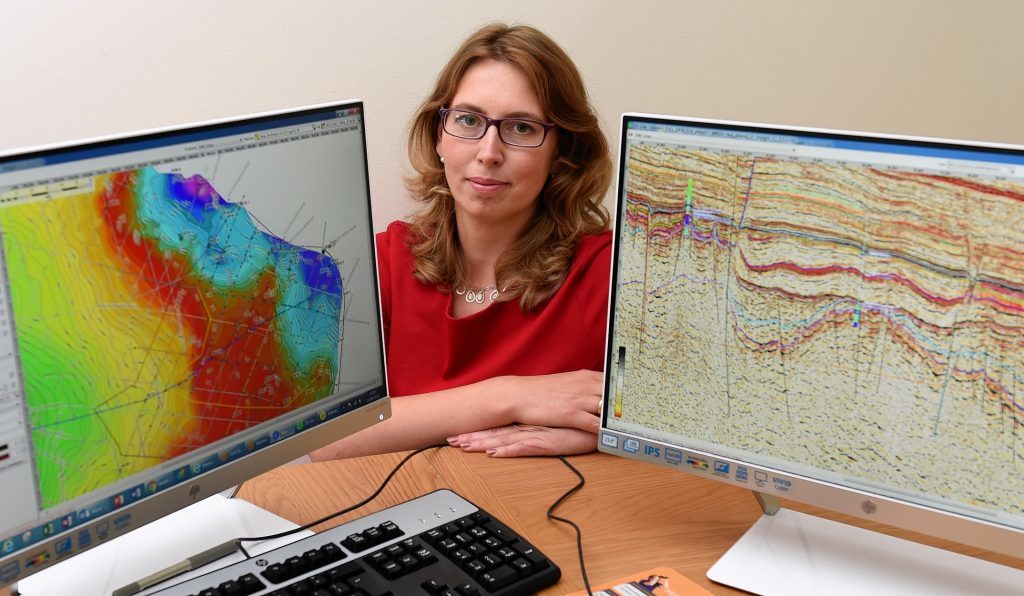
North Sea oil and gas companies who need help turning projects around quickly would be well advised to look up Kinga Wroblewska.
The geophysicist was made redundant in February due to the low levels of drilling activity on the UK continental shelf (UKCS).
But Ms Wroblewska, who has more than 17 years’ experience in the sector, didn’t waste any time getting back on the horse.
The following month she launched her own consultancy, Geop4ysics, and is already focusing on her first contract, which was awarded by the Oil and Gas Authority (OGA).
For Ms Wroblewska, the start-up process was a breeze from a bureaucratic point of view.
“It was not complicated,” said Ms Wroblewska, who works from her family home Kingswells. “In the UK all of the information you need is online. For me, that was a surprise. You can apply one day and the next day you get a letter, and you don’t have to pay a lot of money, so it’s really helpful.
“If people try to start their own business and hire people then they would need more time but to start a company as a single person operation is simpler.”
The main obstacle was covering the costs of buying the technology needed to do the job.
“I didn’t have a work station,” she said. “That was the most expensive thing I had to acquire. You need powerful computers and good monitors for this job. But there are a lot of refurbished work stations out there, so I was able to buy a good one.
“When I got the project from the OGA I had to rent software and it’s quite expensive – that’s the worst part of this business.
“When you are on your own you can only choose one or two types of software, whereas big companies have more software and can do more things.”
But software limitations didn’t put off the OGA. The authority awarded her a five-figure sum to put together a body of work that could stimulate UKCS exploration.
Geop4ysics was one of three winners picked from 60 applicants.
Her project involves horizon and fault interpretation and the integration of rock physics into seismic images − creating maps of stratigraphic units. It will use information from the Common Data Access database of the Mid North Sea High area. The images produced will highlight the hydrocarbon potential in the basin.
The OGA will use the information to decide which companies are most capable of extracting the hydrocarbons – and are therefore most worthy of being awarded blocks in the 29th Licensing Round, which kicked off last month.
She has until mid-November to get her project over the line, and is working hard.
“I hope I will manage it − it’s a huge project,” said Ms Wroblewska, who wants to secure a new project once she is finished, or find full-time employment with a company again.
Recommended for you

